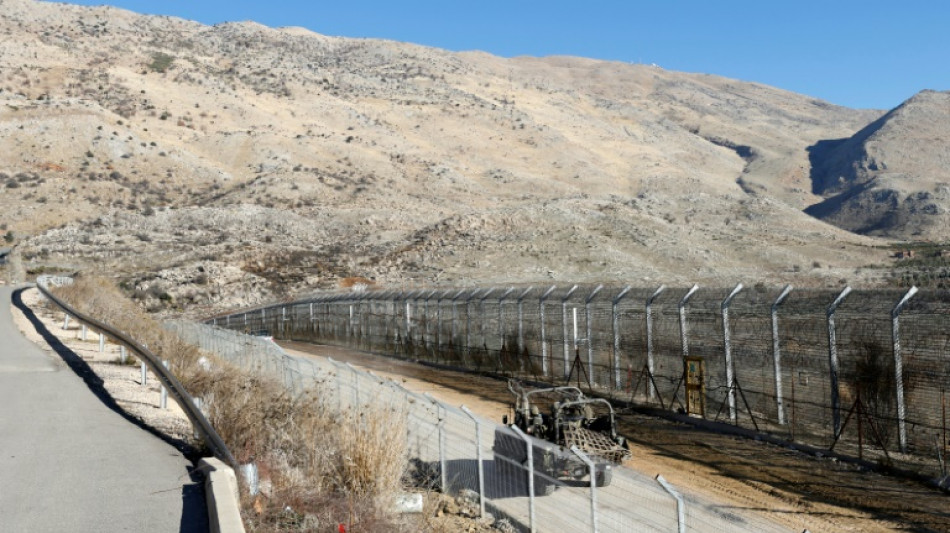
-
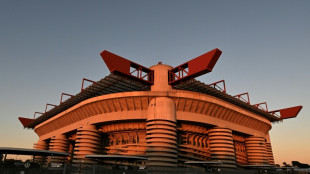 San Siro on course for demolition after sale to Inter and AC Milan approved
San Siro on course for demolition after sale to Inter and AC Milan approved
-
Trial opens over Bangkok murder of French-Cambodian ex-MP

-
 Gauff survives tense Bencic test to reach Beijing quarter-finals
Gauff survives tense Bencic test to reach Beijing quarter-finals
-
US careens toward government shutdown as both parties dig in
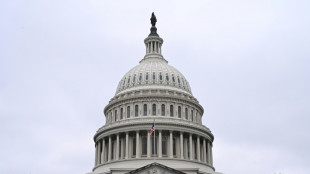
-
 Wolf attack in Greece prompts calls for hunting rights
Wolf attack in Greece prompts calls for hunting rights
-
Trump to address rare mass meeting of US military leaders

-
 Iranian director Jafar Panahi defies censors again with new film
Iranian director Jafar Panahi defies censors again with new film
-
Taliban impose communications blackout across Afghanistan
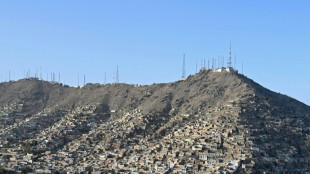
-
 Barca's Yamal eyes up PSG after Ballon d'Or miss
Barca's Yamal eyes up PSG after Ballon d'Or miss
-
PSG facing injury crisis as Barcelona present first big test

-
 British bettor Bloom's football empire blossoming with Belgian club USG
British bettor Bloom's football empire blossoming with Belgian club USG
-
US tariffs on lumber imports set for October 14
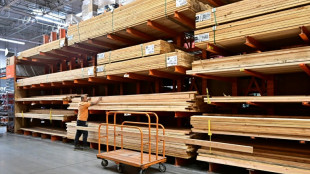
-
 Australia lose Maxwell for New Zealand T20s after freak net blow
Australia lose Maxwell for New Zealand T20s after freak net blow
-
India plans mega-dam to counter China water fears
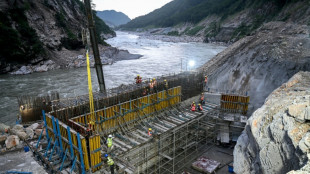
-
 Colombia manufactures its first rifles to replace Israeli weapons
Colombia manufactures its first rifles to replace Israeli weapons
-
Stocks rise, gold hits record as rate cuts and shutdown loom

-
 Dolphins star Hill suffers gruesome injury in Jets clash
Dolphins star Hill suffers gruesome injury in Jets clash
-
Paralympics' vote to lift Russian suspension 'bold step' as conflict rages: ex-IOC executive

-
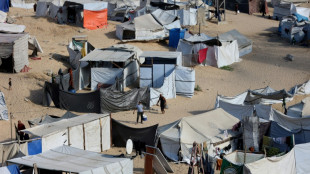 Gazans say Trump's peace plan a 'farce'
Gazans say Trump's peace plan a 'farce'
-
UN Security Council to vote on future of foreign Haiti force
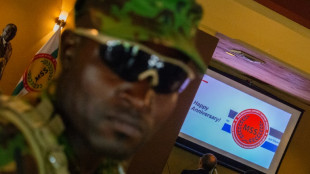
-
 Far-right German MP's ex-aide faces verdict in China spy case
Far-right German MP's ex-aide faces verdict in China spy case
-
YouTube to pay $22 million in settlement with Trump

-
 Internet outrage over Trump's AI conspiracy video
Internet outrage over Trump's AI conspiracy video
-
Coalition of states vows to protect access to abortion pill under Trump review
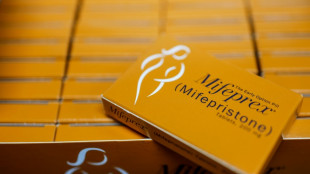
-
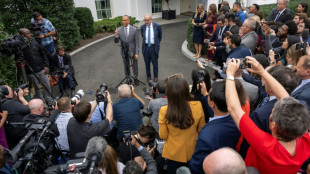 Trump meets Democrats without breakthrough on imminent shutdown
Trump meets Democrats without breakthrough on imminent shutdown
-
Muslim states join EU powers in backing Trump Gaza plan
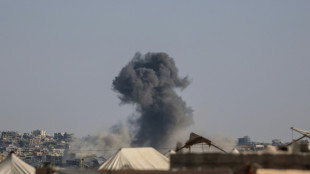
-
 California enacts AI safety law targeting tech giants
California enacts AI safety law targeting tech giants
-
Creator says AI actress is 'piece of art' after backlash

-
 Nuno makes his point as West Ham rescue Everton draw
Nuno makes his point as West Ham rescue Everton draw
-
Slot challenges Liverpool players to 'give their all' against Galatasaray

-
 Dodgers eye rare repeat as MLB playoffs get under way
Dodgers eye rare repeat as MLB playoffs get under way
-
Solanke surgery leaves Spurs struggling for strikers

-
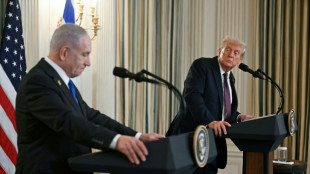 Trump's Gaza peace plan wins Netanyahu backing
Trump's Gaza peace plan wins Netanyahu backing
-
New-look Paris Fashion Week kicks off with Saint Laurent

-
 Anthropic launches new AI model, touting coding supremacy
Anthropic launches new AI model, touting coding supremacy
-
Trump announces Gaza peace plan, with Netanyahu backing

-
 'Better, stronger' Wembanyama can't wait for NBA return
'Better, stronger' Wembanyama can't wait for NBA return
-
LeBron relishing 23rd season as retirement draws near

-
 'Always a blue': Mourinho expects Chelsea fans to show respect
'Always a blue': Mourinho expects Chelsea fans to show respect
-
Michigan governor asks to 'lower the temperature' after church attack
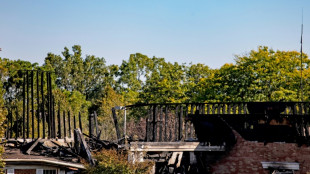
-
 S. Africa lose World Cup qualifying points over ineligible player
S. Africa lose World Cup qualifying points over ineligible player
-
Rugby chiefs open to R360 role in women's game after World Cup success

-
 Inter Milan announce 35.4 million euro profits ahead of San Siro vote
Inter Milan announce 35.4 million euro profits ahead of San Siro vote
-
Madagascar protests reignite, UN says at least 22 dead
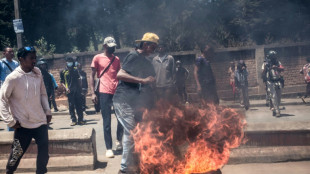
-
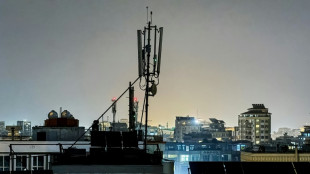 Taliban shut down communications across Afghanistan
Taliban shut down communications across Afghanistan
-
Serbia arrests 11 accused of stirring Jewish-Muslim hate in France, Germany
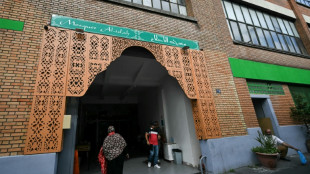
-
 J.K. Rowling attacks 'ignorant' Harry Potter star Emma Watson
J.K. Rowling attacks 'ignorant' Harry Potter star Emma Watson
-
Electronic Arts to be bought by Saudi-led consortium for $55 bn

-
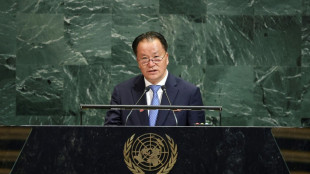 N.Korea vows at UN never to give up nuclear
N.Korea vows at UN never to give up nuclear
-
Hamilton reveals 'hardest decision' over dog's death


Syria says Israeli strikes 'aimed at undermining' progress, stability
Syria's Foreign Minister Asaad al-Shaibani condemned on Wednesday Israeli strikes in retaliation for overnight rocket fire, saying they were aimed at destabilising his country.
Israel bombed southern Syria after the military reported that two projectiles were fired into Israeli territory, with media reports saying these were the first launched from Syria since the fall of longtime ruler Bashar al-Assad in December.
Two unknown groups claimed responsibility for the launches, while Syrian authorities denied responsibility and said they would "never be a threat" to anyone in the region.
Israeli Defence Minister Israel Katz held Syria's leader "directly responsible".
There were no reports of casualties or damage on the Israeli side from the projectiles, which the military said triggered air raid sirens in the southern Golan Heights, a territory Israel seized from Syria in 1967 and annexed in 1981.
The Israeli military said that the two projectiles "fell in open areas", later announcing it struck "weapons" belonging to the Syrian government in retaliation.
Shaibani said that the Israeli attacks were "coordinated provocations aimed at undermining Syria's progress and stability".
"These actions create an opening for outlawed groups to exploit the resulting chaos," the top Syrian diplomat told a news conference in Damascus alongside visiting EU Commissioner for the Mediterranean Dubravka Suica.
"Syria has made its intentions clear: we are not seeking war, but rather reconstruction," he added.
- Israel blames Sharaa -
The foreign ministry earlier said in a statement carried by the official SANA news agency that the Israeli shelling was a "blatant violation of Syrian sovereignty" that "aggravates tensions in the region".
"Syria has never been and will never be a threat to anyone in the region," it said.
The ministry said it could not confirm whether rockets were launched towards Israel, blaming "numerous parties... trying to destabilise the region".
Katz said in a statement that "we view the president of Syria as directly responsible for any threat or fire directed at the State of Israel".
Syria's interim President Ahmed al-Sharaa led the Islamist group that spearheaded the offensive that toppled Assad.
Following Assad's overthrow, Israel moved its forces into the UN-patrolled demilitarised zone in the Golan, and has carried out hundreds of strikes against military targets in Syria.
Israel says the strikes aim to stop advanced weapons from reaching Syria's new authorities, whom it considers jihadists.
A group called the "Martyr Mohammed al-Deif Brigades", named after the Hamas commander killed by Israel in the Gaza Strip, released a video it said showed the moment the rockets landed in the occupied Golan Heights.
A second group known as the "Islamic Resistance Front in Syria" claimed responsibility for launching the two rockets at Israel. The group was created a few months ago and called for action against Israel from south Syria.
AFP was unable to verify the authenticity of their claims.
- Escalation -
SANA reported Israeli shelling "targeting the Yarmuk Basin, in the west of Daraa" province.
The Syrian Observatory for Human Rights war monitor said bombardments had hit farmland in the province, without reporting casualties.
Since taking over, Sharaa has said Syria does not want conflict with its neighbours, urging international pressure on Israel to halt its attacks.
Analyst Bassam al-Suleiman said those benefiting from the escalation were "Iran and its militias", former Assad allies with a past presence in Syria.
A strong government in Damascus "apparently contradicts the Israeli vision for Syria" as a weak neighbour, he said.
Israel's recurring bombings of Syrian army infrastructure "hinders the emergence of a force capable of controlling all of Syria", Suleiman added.
Syria and Israel have technically been at war since 1948.
US President Donald Trump last month lifted sanctions on Syria and expressed hope for eventual normalisation with Israel -- though analysts say that remains unlikely.
During a visit to Damascus last week, US Special Envoy for Syria Thomas Barrack proposed a "non-aggression agreement" as a starting point between the two countries.
A.Zbinden--VB
